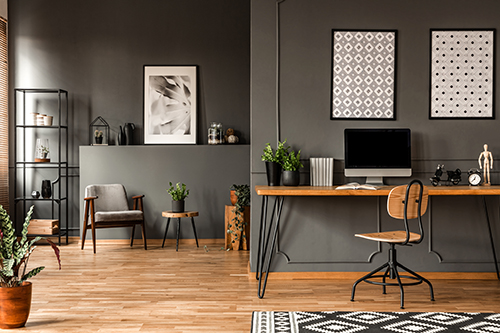
Imagine owning a business housed within a charming cottage that’s nestled on a bustling street. It is a dream many aspiring entrepreneurs share, as it offers an appealing blend of homey aesthetics and commercial functionality.
However, converting a residence into a business property involves several crucial considerations, including zoning laws, building codes, community reactions, and the suitability of different residential buildings for various types of businesses.
Zoning: Home-Based Business vs. Complete Commercial Conversion
Zoning laws dictate how you can use a property. Operating a home-based business typically implies that the residence remains primarily for living, with only a portion of it used for business purposes. However, converting a house entirely into a commercial entity often necessitates a change in its zoning classification. It is essential to consult your local zoning ordinances or a zoning lawyer to understand the feasibility and implications of such a conversion.
Building Codes: Adapting to Commercial Requirements
Commercial properties often need to meet more building code requirements than residential properties do. These might include enhanced fire safety measures, provisions for accessibility (including wheelchair access), additional parking spaces, and more. It is crucial to consult with a building inspector or a commercial real estate attorney to ensure your property adheres to all necessary regulations.
Community Reaction and Relationships
Transforming a residence into a business can impact the surrounding community. Traffic patterns, noise levels, and neighborhood aesthetics may change, potentially leading to concerns among your neighbors. Maintaining open lines of communication, addressing citizens’ worries, attending zoning board and town council meetings, and fostering good relationships can play a significant role in the smooth transition of your property.
Types of Residential Buildings as Business Locations
Different styles of residences lend themselves well to distinct types of businesses. A quaint cottage could make a delightful boutique or salon, providing a unique shopping or pampering experience. An unconventional yurt might serve as an intriguing art gallery, sparking curiosity and attracting art lovers. A stately brownstone could house professional offices, offering a sense of elegance and gravitas. Choosing the right property for your business type allows you to build an inviting atmosphere for your customers.
Transforming a residential property into a business location is a significant undertaking that requires careful planning and consideration. By understanding the barriers that you must overcome and selecting the appropriate property for your business type, you can turn your dream of operating a business in a charming residential setting into a reality.

